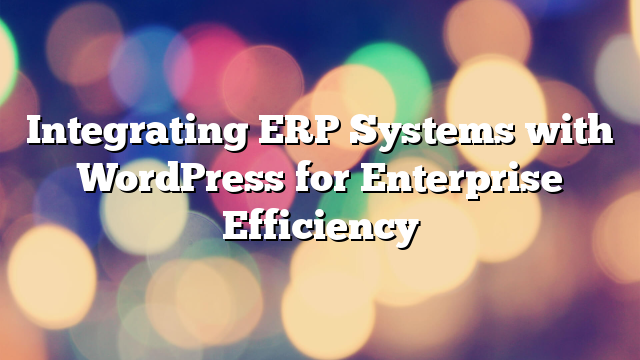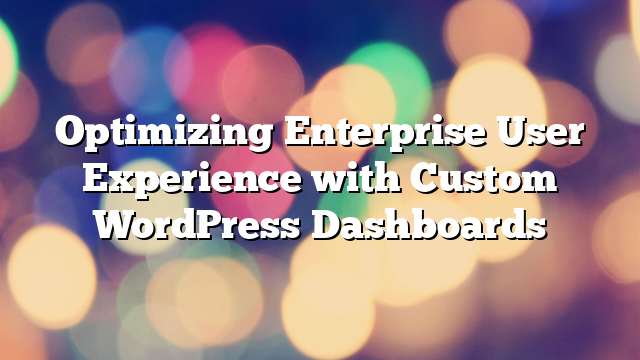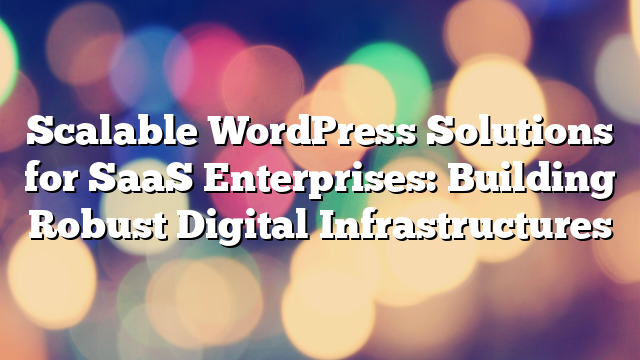How PHP Powers Enterprise-Level WordPress Development
29.12.2024

As the backbone of WordPress, PHP plays a critical role in building and maintaining enterprise-level websites. With its versatility, scalability, and extensive community support, PHP enables businesses to create robust and customized solutions tailored to their needs. In this article, we’ll dive into how PHP supports enterprise WordPress development and why it’s a preferred choice for large-scale web applications.
Why PHP is Essential for WordPress
PHP, or Hypertext Preprocessor, is a server-side scripting language specifically designed for web development. WordPress is built on PHP, and its core functionality, themes, and plugins rely on PHP scripts. This close integration makes PHP indispensable for customizing and extending WordPress to meet the complex requirements of enterprise websites.
Key Benefits of PHP in Enterprise WordPress Development
1. Scalability for Large Websites
Enterprises often manage websites with high traffic, extensive content libraries, and complex functionalities. PHP’s scalability ensures that WordPress websites can handle these demands while maintaining optimal performance.
2. Extensive Customization
PHP allows developers to create custom themes, plugins, and functionalities tailored to specific business needs. From unique user interfaces to advanced integrations, PHP’s flexibility makes it possible to deliver a truly bespoke experience.
3. Integration Capabilities
PHP’s compatibility with various databases, APIs, and third-party tools makes it an excellent choice for integrating WordPress with enterprise systems. Whether connecting with CRM software, analytics platforms, or e-commerce solutions, PHP facilitates seamless integrations.
4. Open-Source Advantage
As an open-source language, PHP is free to use and benefits from a vast global community. Enterprises can leverage this community for support, updates, and a wealth of pre-built tools and libraries.
5. Rapid Development
PHP simplifies the development process with built-in functions and frameworks like Laravel and Symfony. This speed is invaluable for enterprises working on tight deadlines or requiring frequent updates.
6. Proven Security Features
PHP offers robust security options, including encryption, authentication, and input validation. Enterprises can implement these features to protect sensitive data and ensure compliance with industry standards.
How PHP Enhances Enterprise WordPress Features
1. Custom Themes and Templates
Using PHP, developers can create dynamic themes and templates that adapt to user behavior, device types, or content categories. This customization improves user engagement and enhances branding.
2. Advanced Plugin Development
PHP powers WordPress plugins, enabling enterprises to add unique functionalities like custom forms, analytics dashboards, and content automation. Developers can also modify existing plugins to meet specific requirements.
3. Database Management
WordPress uses MySQL databases, and PHP provides the tools to manage and optimize database interactions. For enterprise websites, efficient database queries and structures are essential for performance.
4. API Integration
PHP’s compatibility with RESTful APIs and GraphQL enables seamless data exchange between WordPress and external systems. Enterprises can use these integrations to sync data, automate workflows, or enhance user experiences.
5. Multisite Networks
For enterprises managing multiple websites, PHP plays a pivotal role in setting up and customizing WordPress Multisite networks. This capability simplifies administration and ensures consistency across sites.
Best Practices for Using PHP in Enterprise WordPress Development
1. Follow Coding Standards
Adhere to WordPress’s PHP coding standards to maintain code quality and ensure compatibility with future updates. Clean and well-documented code is essential for large-scale projects.
2. Optimize Performance
Minimize database queries, enable caching, and use lightweight frameworks to enhance website performance. Regularly audit and refactor PHP code to eliminate inefficiencies.
3. Prioritize Security
Implement security best practices, such as sanitizing inputs, using nonces, and validating user authentication. Regular updates to PHP and WordPress core also help mitigate vulnerabilities.
4. Test Extensively
Thorough testing is crucial for enterprise websites. Use automated testing tools to identify and resolve issues in PHP code before deployment.
5. Leverage Frameworks
Consider using PHP frameworks like Laravel or Symfony for complex projects. These frameworks offer additional tools and functionalities to streamline development.
Challenges of Using PHP in Enterprise Development
1. Legacy Code Management
Enterprises often have legacy PHP code that requires updates to align with modern standards. Refactoring and maintaining such code can be time-consuming.
2. Performance Bottlenecks
Poorly optimized PHP code can lead to slow load times and resource inefficiencies. Regular code reviews and optimization techniques are essential.
3. Dependency on Skilled Developers
PHP development for enterprises requires experienced developers familiar with WordPress and large-scale applications. Finding and retaining such talent can be a challenge.
4. Compatibility Issues
As WordPress evolves, older PHP versions may become incompatible. Enterprises must stay updated with the latest PHP releases and WordPress core updates.
Conclusion
PHP is the cornerstone of enterprise WordPress development, offering the flexibility, scalability, and performance that large-scale websites demand. By leveraging PHP’s capabilities, enterprises can create customized solutions that meet their unique requirements while ensuring long-term reliability and security. Adopting best practices and addressing potential challenges ensures that PHP remains a powerful tool for building and maintaining enterprise-level WordPress websites.
Are you ready to harness the power of PHP for your enterprise WordPress project? Contact AllWebDev today and let us help you unlock the full potential of your website!



